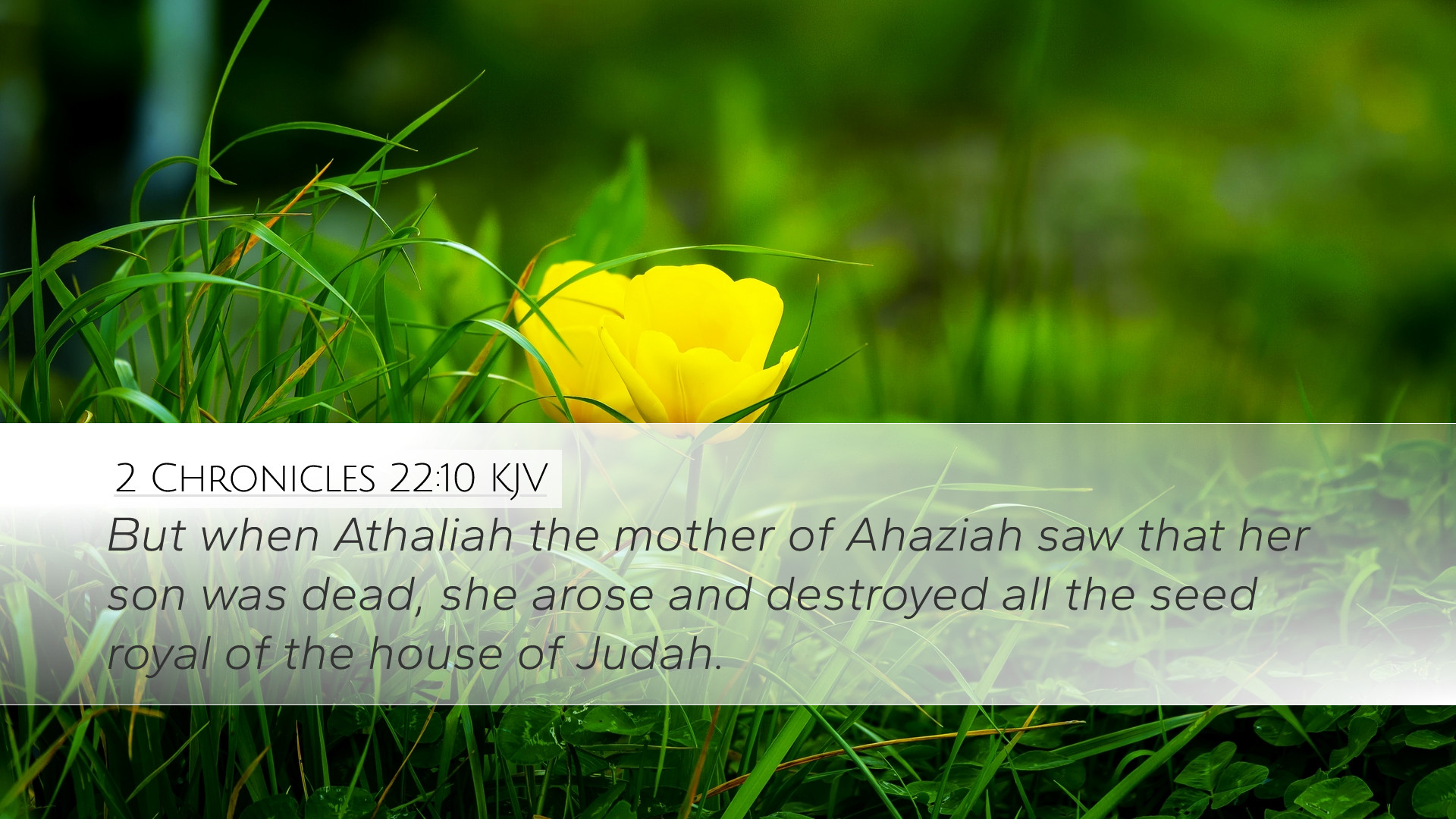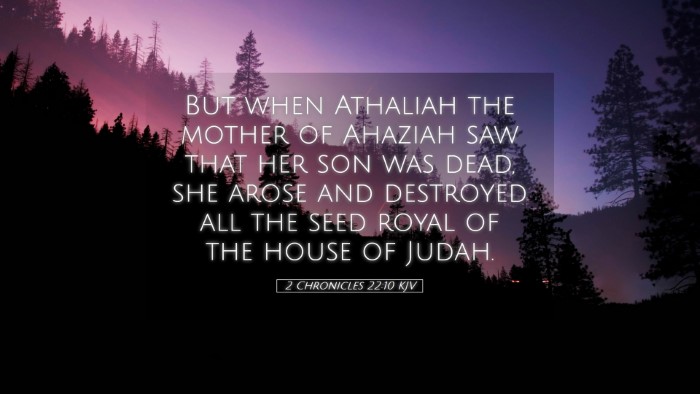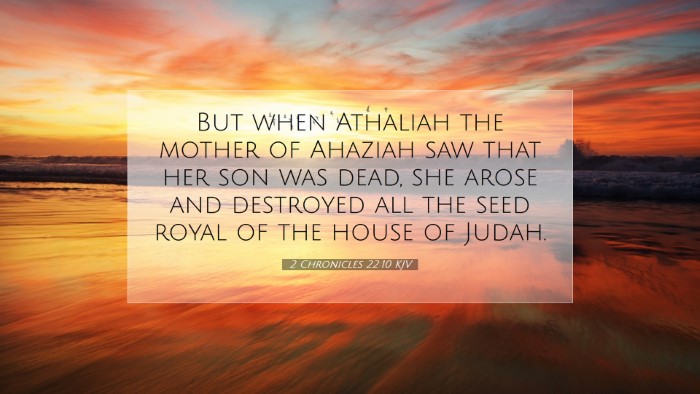Commentary on 2 Chronicles 22:10
In the verse 2 Chronicles 22:10, we find a significant moment in the history of Judah, particularly regarding the royal lineage and the divine providence surrounding it. The historical context is essential for understanding the weight of this passage, as it marks a turning point in the Judahite monarchy.
Contextual Background
This verse occurs within a narrative that recounts the aftermath of King Ahaziah's death. Ahaziah was the son of Athaliah, the daughter of Ahab, and thus linked to a lineage notorious for its idolatry and opposition to the worship of Yahweh. Athaliah, upon the death of her son, made a detrimental decision to eliminate the heirs of the throne in order to secure her power.
Commentary Insights
-
Matthew Henry's Commentary:
Matthew Henry emphasizes the tragic reality of Athaliah's actions, which were driven by ambition and a desire for power. He notes that her ruthless pursuit leads to a near-complete annihilation of the royal family, and he reflects on the implications of her actions in the light of divine providence.
-
Albert Barnes' Notes on the Bible:
Barnes provides insight into the broader implications of this chaos. He points out that Athaliah's attempts to eradicate the royal heirs coincide with God's plan to preserve the true line of David. The providential action to hide Joash, one of the royal descendants, is a pivotal moment that showcases God's sovereignty and protection over His covenant people.
-
Adam Clarke's Commentary:
Clarke offers a closer examination of the character of Athaliah and critiques her foreign influence through Ahab's lineage. He argues that her idolatrous practices, cultivated during her upbringing in Ahab’s household, undermine her legitimacy as a ruler in Judah. He draws attention to how her reign serves as both a moral warning and an example of the potential for destruction that arises from forsaking covenant fidelity.
Theological Implications
The events chronicled in this verse extend far beyond a simple historical recounting. They present profound theological themes such as:
- God's Sovereignty: The narrative illustrates that despite human attempts to alter or destroy God's plans, His purposes prevail. The preservation of Joash is crucial as it ensures the continuation of the Davidic line, which eventually leads to the lineage of Jesus Christ.
- Moral Justice: The actions of Athaliah serve as a case study in divine justice. While she may have momentarily succeeded in her scheme, the eventual downfall of her reign is a reminder of God's moral order.
- Human Ambition Versus Divine Plan: Athaliah's ambition leads to chaos and destruction, while the protective hand of God over Joash indicates that true power lies not in ruthless ambition but in alignment with divine intent.
Application for Today
This passage resonates with contemporary readers, prompting introspection and application in various ways:
- Leadership and Integrity: The destructive path of Athaliah serves as a cautionary tale for leaders today. It emphasizes the importance of integrity, humility, and accountability in positions of power.
- Faith in Divine Providence: Believers are reminded to trust in God's sovereign control, especially during challenging times, knowing that His plans will ultimately prevail.
- The Importance of Righteous Influence: This story underscores the importance of surrounding oneself with godly influences and the damaging consequences of straying into alliances that compromise faith and values.
Conclusion
In 2 Chronicles 22:10, the narrative encapsulates a dramatic moment laden with theological significance and moral lessons. The combined insights of renowned commentators such as Matthew Henry, Albert Barnes, and Adam Clarke enrich our understanding of the passage, providing guidance for pastors, theologians, and students alike. This verse invites us to reflect on the nature of power, the repercussions of moral decline, and the unwavering fidelity of God to His promises.


